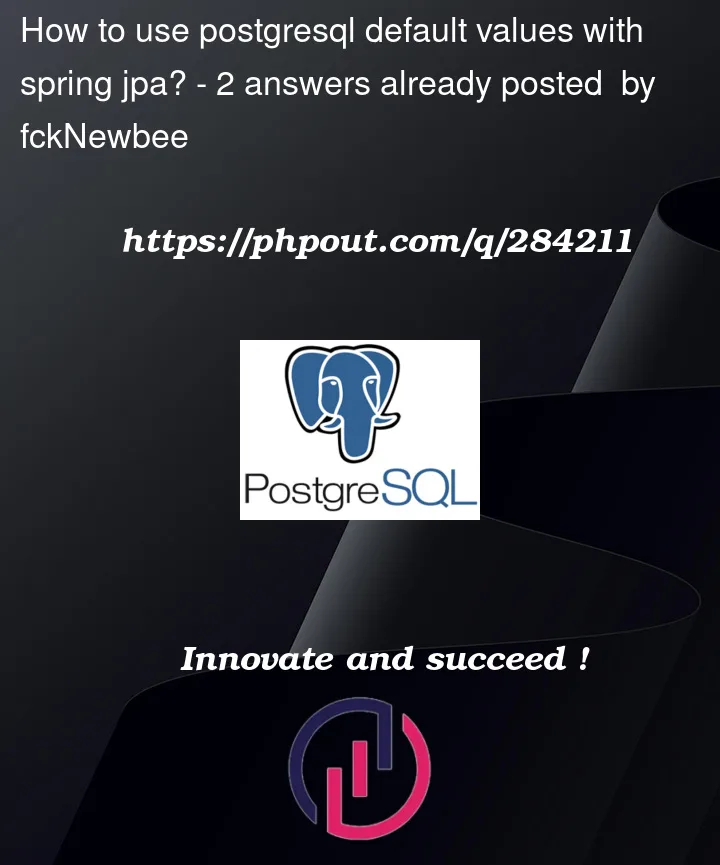I have a simple enough question. I have some entity (I’ve deliberately cut it down) that has id, name and another identifier(publicId) in the form of uuid, but which is stored in the database as a string.
@Entity
@Table(name = "some_entity")
@Getter
@Setter
@Builder
@NoArgsConstructor
@AllArgsConstructor
public class SomeEntity extends BaseEntity<Long> {
@Id
@Column(name = "id", updatable = false, nullable = false)
@GeneratedValue(strategy = GenerationType.IDENTITY)
private Long id;
@Column(name = "public_id", nullable = false)
private String publicId;
@Column(name = "name", nullable = false)
private String name;
}
For this entity I have a sql format migration for liquibase. It looks like the following.
CREATE TABLE some_entity
(
id BIGINT GENERATED ALWAYS AS IDENTITY
CONSTRAINT expense_card_pk PRIMARY KEY,
public_id VARCHAR(50) NOT NULL DEFAULT uuid_generate_v4(),
name VARCHAR(50) NOT NULL
);
As you can see, for the public_id field I use the default function from the "uuid-ossp" package – uuid_generate_v4().
Now, I’m trying to save the SomeEntity object that i created with lombok builder. In the builder, I have specified only the name field. And with the help of spring repository I am saving the object. BUT! I get an error when saving the item.
ERROR: null value in column "public_id" of relation "expense_card" violates not-null constraint
And I understand why it’s happening. Builder creates an object, all fields of which have null, except for name. I try to save such an object, and it turns out that I save null in the not null field. But isn’t that bullshit? Shouldn’t postgres handle this?
Anyway can you please tell me how I can create an identifier for the public_id field in uuid format automatically, without doing it in the builder every time I create an object?
Ideally, I want this responsibility to be on the database. As a last resort, maybe there are some jpa annotations for this?
Yes, by the way, I want to store this identifier in string format.




2
Answers
Since you are using migration tool annotate your entity class with
@DynamicInsertand remove nullable=false in your public_id entity definition (in POJO).You must force Hibernate to omit the value public_id when creating insert statement. Then DB will take care to create default value. Otherwise you’ll get the constraint violation due to you explicitly tell DB to save null in non-null field
DynamicInsert causes that your insert statements omit fields that were not assigned/changed within transaction
You may want to check out
uuid_generate_v4()– can use the uuid_generate_v4() function as a default value for the column.this makes sure that uuid_generate_v4() is cast to VARCHAR(50) before being assigned to the public_id column; doing so, you don’t need to specify the publicId field in your builder when creating a new SomeEntity object.
And, don’t forget to annotate it!